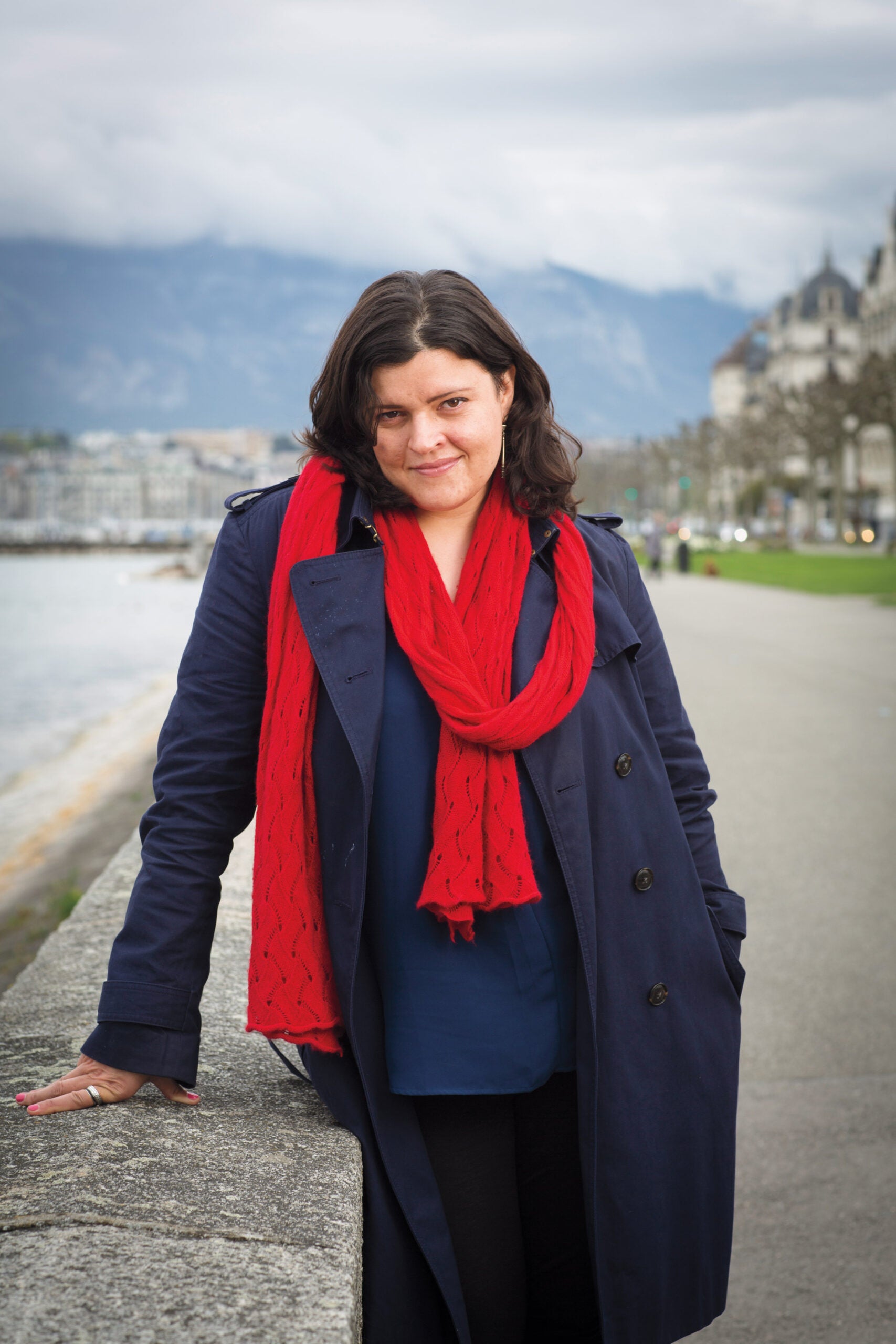For much of her career, Sareta Ashraph LL.M. ’01 has worked to uncover the truth behind some of the worst conflicts in the world. She has investigated human rights abuses including murder, torture, and rape, and has spoken to people traumatized by what they have seen and experienced. From afar, people may conclude that those who perpetrate such violence are inherently evil, she says. But from up close, she has a different view.
“I take issue with the concept of bad people,” she says. “Wars are really complicated. It’s easy to make snap judgments on what people do.”
She is now immersed in one of the more complicated conflicts, as the chief analyst on the U.N. Commission of Inquiry on the Syrian Arab Republic. Based in Geneva, it is the U.N.’s longest running investigation of this nature, she says, involving hundreds of in-person interviews of Syrian refugees displaced in neighboring countries and phone or Skype interviews of Syrians in-country (the Syrian government won’t allow the commission within its borders). While the group ISIS garners much of the world’s attention because of its gruesome execution videos, she notes that an increasing number of groups that resemble criminal gangs operate there, and the Assad government now conducts air bombardments after firing on protesters in the earlier stages of the conflict.
Ashraph is in charge of reporting, documenting and tracking violations, with the goal of facilitating accountability, potentially through the International Criminal Court or ad hoc tribunals. She had the same role for a commission of inquiry on Libya during the final period of the Qaddafi regime, producing a report documenting crimes against Libyans and minorities. The ICC is using that report in an ongoing investigation, but Ashraph acknowledges that seeing justice done in the aftermath of international crimes can be a “very long game.” When she interviews people, she says: “You’re not promising them anything. You’re just asking them to share their stories, and we’re not giving very much in return except the experience that your story is being documented. And that is very difficult.” Still, when perpetrators are called to account for their actions, “I have a very keen sense of how important these trials are to people.”
Perhaps her most high-profile assignment for the U.N. was being part of a team conducting investigations for the Fact-Finding Mission on the Gaza Conflict, which produced findings known as the Goldstone Report. Though the report was criticized for alleged bias against Israel, Ashraph says she is proud of it. In her role, she notes, she interviewed Israelis about what they had suffered. “You have to develop a hard skin if you’re going to work in this area of law because there’s so much politics in international law.”
A native of Trinidad and Tobago, Ashraph first became energized by issues of justice in her home country, where as a teenager she advocated for women’s rights. Later, she developed an understanding of law as a tool to empower people marginalized in society and she became a defense lawyer (currently her practice isn’t active because of her international work). For several years, she lived in Sierra Leone as a member of the defense team representing Issa Sesay, a leader of the Revolutionary United Front who would be sentenced to 52 years for war crimes and crimes against humanity. In that case and others, those accused should have someone in their corner fighting for them, she says: “We don’t drag people in the street and shoot them anymore. There should be real processes with real challenges for the prosecution.”
Ashraph talked about her career with students at HLS in the fall as a Wasserstein Fellow. In her own experience as a student, her interest in human rights work was strengthened by the clinical classes, the guest speakers and the perspectives of other students from around the world.
The work can be all-consuming, and it’s important to find balance in life, with friends and family, she says. Just as important is to realize that people are capable of much more than the worst you can see, she adds.
“A big part of it,” she says, “is trying to find things that remind you how good people are. Because ultimately you need to be in a good place to do this kind of work and be useful.”
